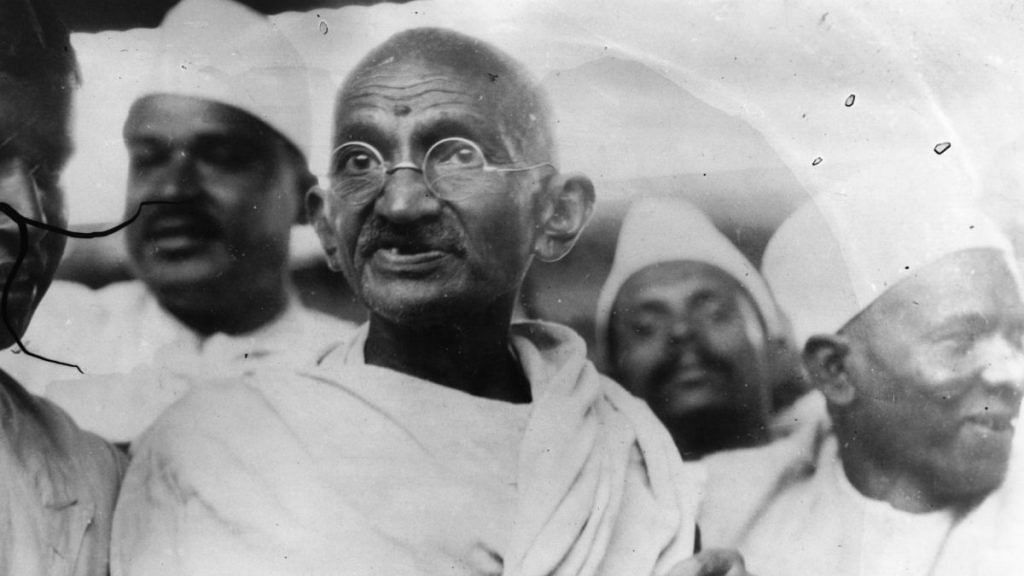It is amply clear that not only was there the wider conspiracy to kill Mahatma Gandhi, the Indian government at the time too was a complete failure in protecting him, with its efforts bordering on complicit negligence. There had already been one failed attempt to assassinate Gandhi less than two weeks ago. And lest we forget, the Indian government at the time was led by Jawaharlal Nehru, our first prime minister, Gandhi’s anointed heir and successor, as well as the Mahatma’s closest, most loyal acolyte, Sardar Vallabhbhai Patel.
Gandhi’s assassination was a terrible personal blow to Patel. Some believe that he never fully recovered from it, himself passing away a couple of years after, on 15 December 1950. Needless to say, the guilt of the Mahatma’s death, bordering on the horrible stain of patricide and coupled with the macabre Partition of India, constitute the twin traumas that mark the birth of our nation.
What this shows at the very least is that to blame Godse alone is collective self-deception, if not futile self-absolution. Worse, it might actually be political wickedness. The very people who use the ghost of Godse to tarnish the RSS and the BJP themselves stand condemned in the dock of history for their failure to protect the Mahatma. They must come clean and say sorry publicly rather than blithely and facilely shifting the blame to an invented bogeyman-cum-murderous-monster called “Hindu terror.”
Also read: There’s a lobby that wants to keep Nathuram Godse alive. And it’s not the Hindu Right
However, there are still a few more loose ends in the intriguing puzzle of why the ghost of Nathuram Godse still stalks the land. Godse, whether we like it or not, was no ordinary criminal or killer. He was not even a trained or hired assassin. He was, instead, an austere, Gita-quoting, self-made intellectual and newspaper editor. On the masthead in an oval inset of Agrani, the broadsheet he and Narayan Apte edited, was the image of none other than their hero and inspiration, Vinayak Damodar Savarkar.
It is reported that Godse visited Savarkar to seek the latter’s blessing before leaving for Delhi. Allegedly, Savarkar even blessed him with “yashasvi houn ya” — come back victorious. What is the source of this information? It is the testimony of Digambar Badge, a member of the assassination squad, who turned approver and state witness. Savarkar stood trial but, for lack of evidence, was not convicted for Gandhi’s killing. Indeed, both Godse, who he never looked at even once during the long-drawn trial, and Apte, sedulously refrained from implicating him in the conspiracy though they could easily have done so.
Godse’s shadow still haunts the Hindu psyche traumatised by the twin tragedies of the Partition and Mahatma Gandhi’s murder. It is because somewhere in our wounded past, many of us also wanted Gandhi dead, if not physically then at least figuratively.
Also read: Godse, raised as a girl, saw Gandhi as an ‘effeminate’ Father who didn’t protect Mother India
The difference is that Godse was prepared to die for his crime while we want to live on comfortably. That Godse bowed before the man he killed or was devoted to the same book that the Mahatma swore by, the Bhagavad Gita, are only some of the many ironies of Hinduism. The fact is that there is both a Mohandas and a Nathuram in most of us. It is this startling and disturbing truth that Kamal Hassan, now notorious for calling Godse independent India’s first “Hindu terrorist,” tried to convey in his moving period pic Hey Ram.
Until we accept and make peace with the Gandhi and Godse within us, both their apparitions will continue to startle, surprise, and provoke us from time to time. The healing of the fractured Hindu psyche can only happen when they not only come to terms with their historical defeats at the hands of both the Islamic and the Western colonial invaders, but also with their differing, sometimes glaringly contradictory, reactions to this defeat.
These latter range from denial, victimhood, outrage, revenge to a more considered and balanced commitment to a new renaissance based on the great legacy of a truly glorious past and an even more promising, knowledge-inspired future based on real competence, skills, and visionary dynamism. However, for this to happen, there must be a new and abiding covenant between the Hindus and the Muslims of the subcontinent, a cause that Gandhi most certainly staked his life for.
Also read: When Nehru’s India banned a story on Gandhi’s murder and Godse’s past
Unfortunately, the last seems a tall order for most Indians, let alone Hindus. Certainly, it is much greater and more demanding than simplistic and reductive political posturing for immediate political gain. But till 23 May, saying as much would be tantamount to little more than preaching to the deaf.
This is the second of a two-part series on Nathuram Godse. Read the first part here. The author is a Professor and Director at the Indian Institute of Advanced Study, Shimla. His views are personal. His Twitter handle is @makrandparanspe.
